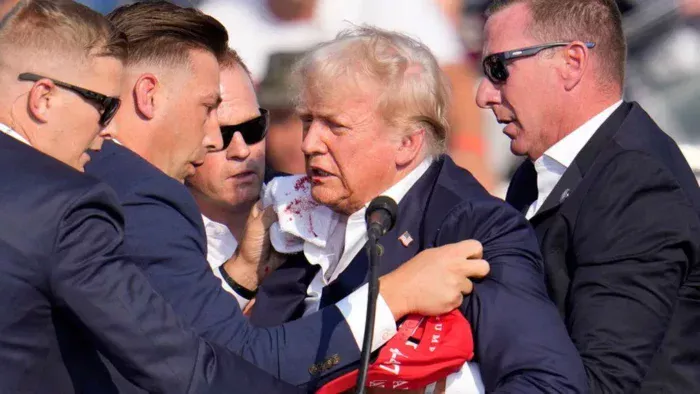During Tuesday’s testimony on Capitol Hill, the acting director of the Secret Service informed lawmakers that his agency had planned for local law enforcement to provide counter-snipers around the perimeter of former President Donald Trump’s rally on July 13. However, this came as a surprise to officers in Butler, Pennsylvania, who stated they were never requested to do so.
The New York Times reported on Acting Director Ronald Rowe Jr.’s testimony before the House Oversight Committee, where he affirmed that an investigation into the assassination attempt is still underway. Lawmakers, frustrated by the lack of accountability, questioned why no one had been dismissed for the significant security lapse. Rowe expressed disappointment that state and local security partners did not position a counter-sniper on the roof where a 20-year-old man was able to shoot at President Trump, grazing his right ear. “They should have been on the roof,” the chief said in what amounted to a mirror excuse of that given by former Director Kimberly Cheatle, who resigned last week.
“His comments were sure to rankle some of the officers who assisted at the rally. Details about what happened have been inconsistent and confusing, as the multiple federal, state and local law enforcement agencies involved have offered their own accounts,” The Times reported. “Local law enforcement officials have previously said the countersnipers were given permission from the Secret Service to surveil the fenced-in grounds from the warehouse windows because of the heat that day.
“Richard Goldinger, the Butler County district attorney who oversees the local countersnipers who were at the rally, issued a statement previously saying that the Secret Service never told his agents to cover the roof that the shooter, Thomas Crooks, 20, used. “I stand by my prior statement that that was not part of their duties that day,” Goldinger said Tuesday.
In a surprising revelation, Rowe admitted that it was the Secret Service’s responsibility to inform local teams guarding the rally’s perimeter about the need for snipers. He acknowledged that this request might not have been communicated, a serious lapse that led him to question the decision-making processes within his own agency. “We need to be very direct to our local law enforcement counterparts that they understand exactly what their expectation is,” he told lawmakers.
Ultimately, Rowe said, the failure to secure President Trump and a death and injuries to rallygoers was “a failure of imagination” to see that “we actually do live in a very dangerous world where people do actually want to do harm to our protectee.” However, he added, “We didn’t challenge our own assumptions. We assumed that someone is going to cover that.”



